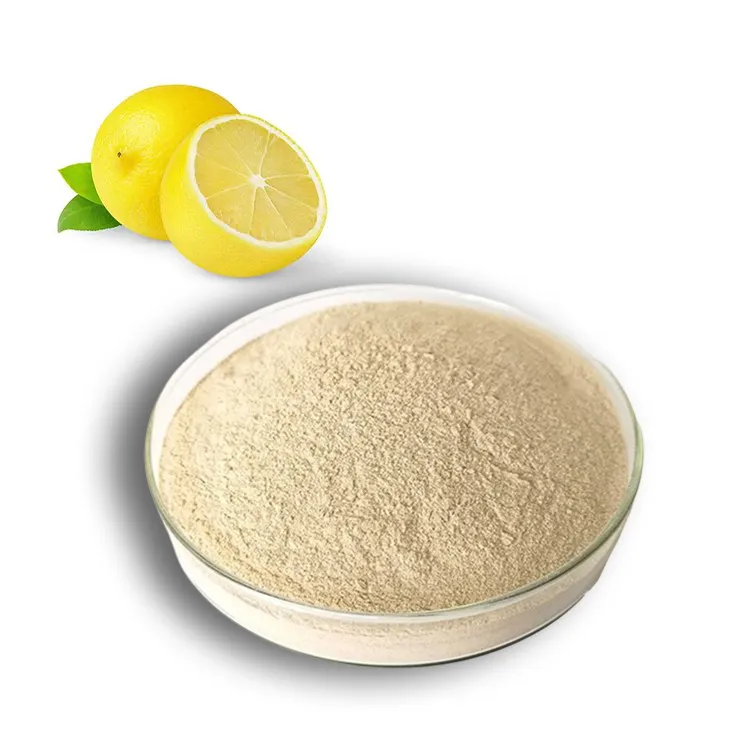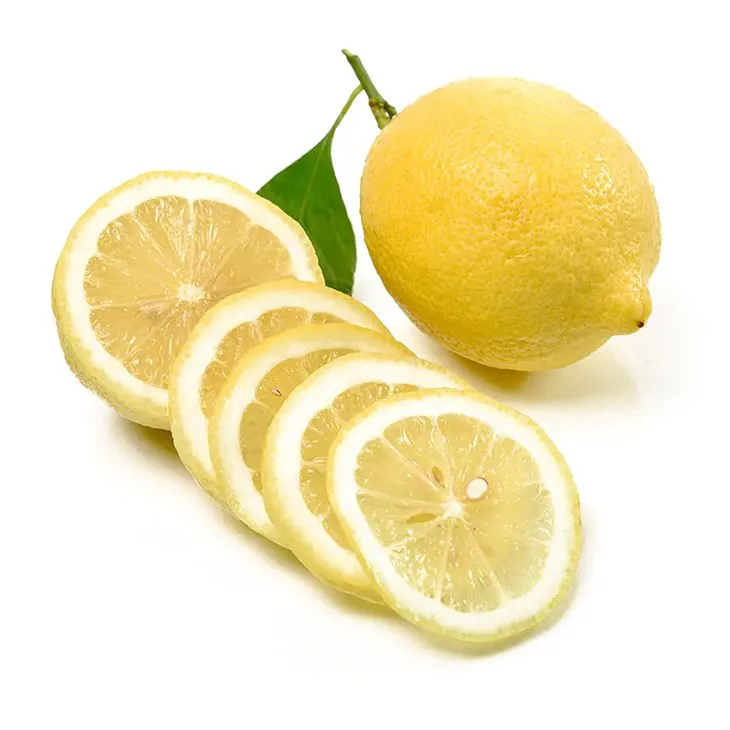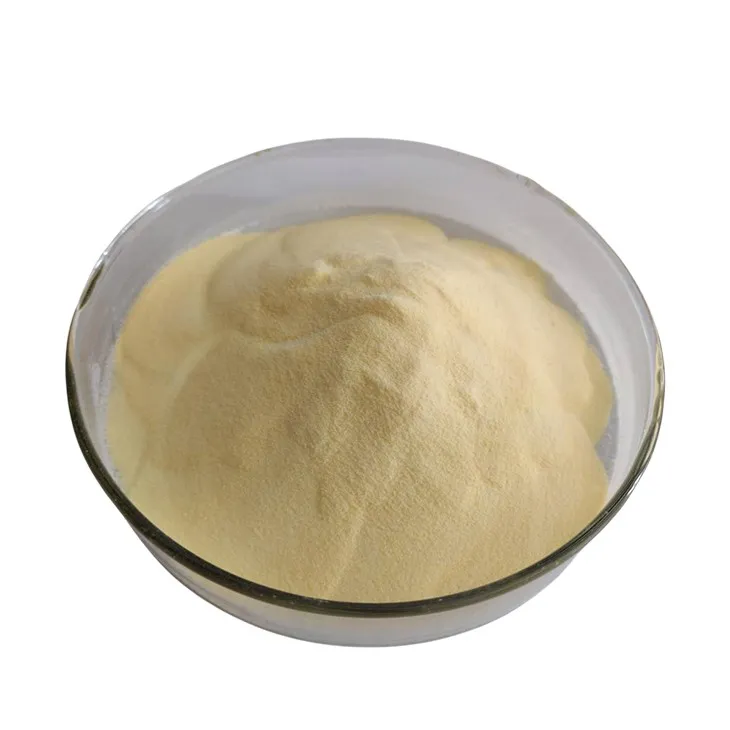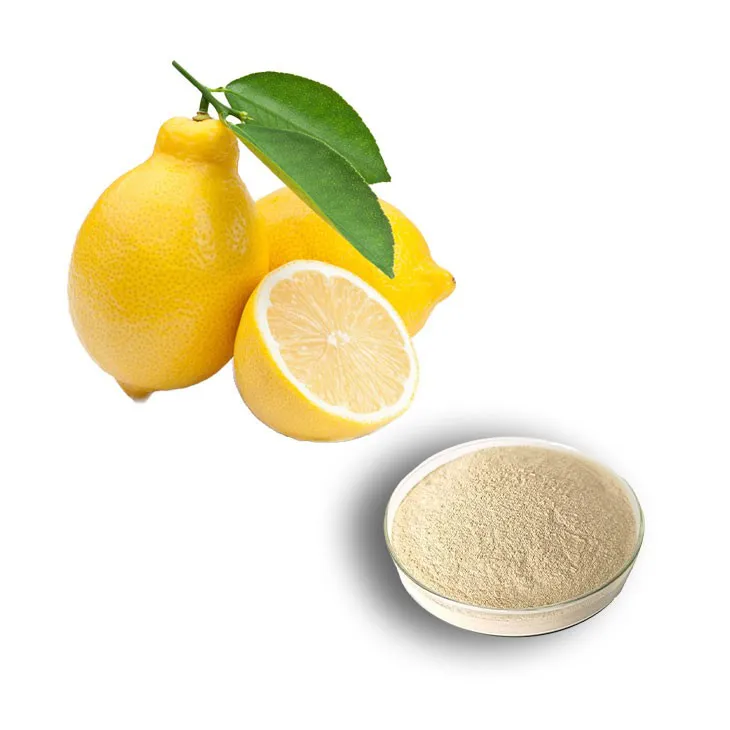- 0086-571-85302990
- sales@greenskybio.com
The best method for extracting lemon extract.
2024-12-02

Introduction
Lemon Extract is highly valued in various industries, including food, beverage, cosmetics, and pharmaceuticals. It is rich in bioactive compounds such as citric acid, flavonoids, and essential oils, which contribute to its unique flavor, aroma, and potential health benefits. Efficient and high - quality extraction methods are crucial to obtain Lemon Extract with desirable properties. This article will explore different extraction techniques, considering factors like efficiency, purity, and preservation of bioactive compounds.

Traditional extraction methods
1. Maceration
Maceration is one of the simplest and most traditional methods for extracting Lemon Extract. It involves soaking lemon peels or whole lemons in a solvent, usually ethanol or a mixture of ethanol and water. The process can be carried out at room temperature or with gentle heating. During maceration, the bioactive compounds in the lemon gradually dissolve into the solvent. However, this method is relatively time - consuming, and the extraction efficiency may not be very high. The quality of the extract may also be affected by factors such as the particle size of the lemon material and the ratio of solvent to sample.
2. Infusion
Infusion is similar to maceration but typically uses hot water as the solvent. Hot water infusion can accelerate the extraction process as the heat helps to break down the cell walls of the lemon tissues and release the bioactive compounds more quickly. For example, in the production of lemon - flavored tea, infusion is a common method. However, this method may not be suitable for extracting more heat - sensitive compounds, and the resulting extract may have a relatively short shelf - life due to the presence of water, which can promote microbial growth.

Modern extraction methods
1. Supercritical fluid extraction (SFE)
Supercritical fluid extraction is a relatively advanced and clean extraction technique. In this method, carbon dioxide (CO₂) is often used as the supercritical fluid. Supercritical CO₂ has properties between a gas and a liquid, which allows it to penetrate the lemon matrix effectively and selectively extract the desired compounds. One of the major advantages of SFE is its ability to operate at relatively low temperatures, which helps to preserve the bioactive compounds in their native state. Moreover, the extraction process is relatively fast, and the purity of the resulting extract can be high. However, the equipment for SFE is expensive, which limits its widespread application in small - scale production.
2. Microwave - assisted extraction (MAE)
Microwave - assisted extraction utilizes microwave energy to heat the lemon sample and the solvent simultaneously. The microwaves cause rapid heating within the sample, leading to the rupture of cell walls and the release of bioactive compounds into the solvent. MAE has the advantages of short extraction time, high extraction efficiency, and relatively low solvent consumption. For example, in a study comparing MAE with traditional extraction methods for lemon essential oil extraction, MAE showed significantly higher yields in a shorter time. However, improper microwave power settings may lead to the degradation of some heat - sensitive compounds.
3. Ultrasound - assisted extraction (UAE)
Ultrasound - assisted extraction employs ultrasonic waves to create cavitation bubbles in the solvent - lemon system. When these bubbles collapse, they generate high - pressure and high - temperature micro - environments, which can disrupt the cell walls of the lemon and enhance the mass transfer of bioactive compounds from the solid phase to the solvent phase. UAE is known for its simplicity, low cost, and high efficiency. It can be used with a variety of solvents, and it is suitable for extracting different types of bioactive compounds from lemons. For instance, in the extraction of lemon flavonoids, UAE has been proven to be an effective method.

Factors affecting the extraction
1. Solvent selection
The choice of solvent is crucial in lemon extract extraction. Ethanol is a commonly used solvent due to its ability to dissolve a wide range of bioactive compounds while being relatively safe and easy to handle. However, for some specific compounds, other solvents may be more suitable. For example, hexane may be used for the extraction of lemon essential oils because it has a high affinity for hydrophobic compounds. The polarity of the solvent should match the nature of the target compounds to ensure efficient extraction. Moreover, the solvent should be of high purity to avoid contaminating the extract.
2. Particle size of lemon material
The particle size of the lemon material, whether it is peels or whole lemons, can significantly affect the extraction process. Smaller particle sizes generally result in a larger surface area exposed to the solvent, which promotes faster and more efficient extraction. However, if the particle size is too small, it may lead to problems such as clogging of the extraction equipment or increased solvent consumption. Therefore, an optimal particle size needs to be determined based on the specific extraction method and equipment used.
3. Extraction time and temperature
Extraction time and temperature are two important factors that need to be carefully controlled. Longer extraction times may increase the yield of the extract, but it may also lead to the degradation of some bioactive compounds or the extraction of unwanted substances. Similarly, higher temperatures can accelerate the extraction process, but heat - sensitive compounds may be damaged. For example, in the case of microwave - assisted extraction, a proper balance between microwave power (which affects temperature) and extraction time needs to be found to ensure high - quality extract production.

Quality assessment of lemon extract
1. Purity analysis
To ensure the quality of lemon extract, purity analysis is essential. Chromatographic techniques such as high - performance liquid chromatography (HPLC) and gas chromatography (GC) are commonly used to separate and identify the components in the extract. These techniques can detect the presence of impurities, such as residual solvents or other unwanted compounds, and determine the concentration of the target bioactive compounds. For example, HPLC can be used to quantify the amount of citric acid or flavonoids in the lemon extract.
2. Bioactivity evaluation
Since lemon extract is often used for its potential health benefits, bioactivity evaluation is also important. In - vitro assays, such as antioxidant assays and antimicrobial assays, can be used to assess the bioactivity of the extract. Antioxidant assays measure the ability of the extract to scavenge free radicals, which is related to its potential anti - aging and disease - prevention properties. Antimicrobial assays can determine the extract's ability to inhibit the growth of bacteria, fungi, or other microorganisms, which is relevant for its application in the food and cosmetic industries.
Conclusion
In conclusion, there are various methods for extracting lemon extract, each with its own advantages and limitations. Traditional methods such as maceration and infusion are simple but may have lower efficiency and shorter shelf - life for the resulting extract. Modern methods like supercritical fluid extraction, microwave - assisted extraction, and ultrasound - assisted extraction offer higher efficiency, better preservation of bioactive compounds, and potentially higher purity of the extract. However, factors such as solvent selection, particle size of lemon material, extraction time, and temperature need to be carefully considered to obtain high - quality lemon extract. Quality assessment through purity analysis and bioactivity evaluation is also necessary to ensure that the extract meets the requirements for different applications. Whether it is for the food, beverage, cosmetics, or pharmaceutical industries, the optimal extraction method should be selected based on specific needs and production scales.
FAQ:
What are the traditional methods for extracting lemon extract?
Traditional methods for extracting lemon extract often include cold - pressing. In cold - pressing, the lemons are mechanically pressed to release the juice, which contains a significant amount of the extract. Another traditional approach is maceration, where lemon peels or the whole fruit are soaked in a solvent (such as ethanol) for a period of time to extract the desired compounds. However, traditional methods may have limitations in terms of efficiency and the purity of the final extract.
How does modern technology improve the extraction of lemon extract?
Modern technology offers several improvements in lemon extract extraction. For example, supercritical fluid extraction (SFE) using carbon dioxide as the supercritical fluid can be very effective. SFE allows for a more selective extraction, resulting in a higher - purity extract with better preservation of bioactive compounds compared to traditional methods. Additionally, ultrasonic - assisted extraction uses ultrasonic waves to enhance the mass transfer during extraction, which can increase the extraction efficiency and reduce the extraction time.
What factors should be considered to ensure the purity of lemon extract?
To ensure the purity of lemon extract, several factors need to be considered. The choice of extraction method is crucial. As mentioned before, modern methods like SFE tend to produce purer extracts. The quality and purity of the starting material, i.e., the lemons, also matter. Lemons should be fresh, free from contaminants, and of high quality. The extraction conditions, such as temperature, pressure (in the case of SFE), and solvent concentration (in solvent - based extractions), need to be carefully controlled. Moreover, proper purification steps after extraction, like filtration and chromatography, can further enhance the purity of the extract.
How can we preserve the bioactive compounds during lemon extract extraction?
To preserve the bioactive compounds during lemon extract extraction, using gentle extraction methods is key. For example, lower - temperature extractions, like cold - pressing in traditional methods and certain temperature - controlled modern methods, can help. Minimizing the exposure to harsh chemicals and high - energy processes also aids in preservation. In modern techniques, optimizing the parameters of supercritical fluid extraction, such as pressure and temperature, can be tailored to preserve the bioactive components. Additionally, rapid processing and proper storage of the extract after extraction, typically in cool and dark conditions, can also contribute to the preservation of bioactive compounds.
What are the applications of high - quality lemon extract?
High - quality lemon extract has a wide range of applications. In the food and beverage industry, it is used as a natural flavoring agent in products like lemon - flavored drinks, candies, and baked goods. In the cosmetics industry, it can be found in skincare products due to its antioxidant and antibacterial properties, which may help in treating skin conditions and providing a refreshing scent. In the pharmaceutical industry, lemon extract may have potential health benefits such as anti - inflammatory and immune - boosting effects, and it can be used in the development of natural remedies or dietary supplements.
Related literature
- Advanced Techniques in Lemon Extract Extraction: A Review"
- "Optimizing the Purity of Lemon Extract: Modern Approaches"
- "Preserving Bioactive Compounds in Lemon Extract: Current Research"
- "Traditional vs. Modern Methods for Lemon Extract Extraction: A Comparative Study"
- ▶ Hesperidin
- ▶ citrus bioflavonoids
- ▶ plant extract
- ▶ lycopene
- ▶ Diosmin
- ▶ Grape seed extract
- ▶ Sea buckthorn Juice Powder
- ▶ Beetroot powder
- ▶ Hops Extract
- ▶ Artichoke Extract
- ▶ Reishi mushroom extract
- ▶ Astaxanthin
- ▶ Green Tea Extract
- ▶ Curcumin Extract
- ▶ Horse Chestnut Extract
- ▶ Other Problems
- ▶ Boswellia Serrata Extract
- ▶ Resveratrol Extract
- ▶ Marigold Extract
- ▶ Grape Leaf Extract
- ▶ blog3
- ▶ blog4
-
The best lemon juice powder in nature.
2024-12-02
-
Organic Vitamin K2 Powder Suppliers
2024-12-02
-
Bulk purchase of L - tyrosine.
2024-12-02
-
Vitamin K2 Manufacturers
2024-12-02
-
100% Pure Natural Rutin.
2024-12-02
-
Chinese Citrus Bioflavonoid Suppliers.
2024-12-02
-
Resveratrol extract
2024-12-02
-
Alisma Extract
2024-12-02
-
White Peony Extract
2024-12-02
-
Bayberry Extract
2024-12-02
-
Scutellaria Extract
2024-12-02
-
Green Tea Extract
2024-12-02
-
Dan Shen Root Extract/Salvia Root Extract
2024-12-02
-
Motherwort Extract
2024-12-02
-
Peppermint Oil
2024-12-02
-
Polygonum Cuspidatum Extract
2024-12-02





















